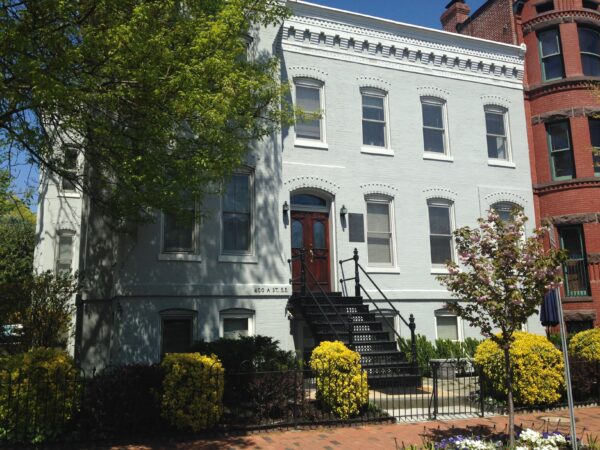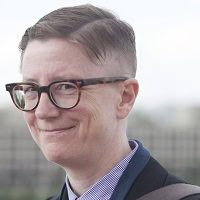
The AHA Townhouse
I’m sending this one out to all the graduate students attending the AHA annual meeting in Atlanta this January. I went to “the AHA” six times in the nine years I was a student and a postdoc. Before I’d advanced to candidacy, it was a fascinating proposition: books, panels, rock star historians, and AHA tote bags! Awesome. But that energy turned on me once I went on the academic job market. The annual meeting came to loom over the holidays like a glowering cartoon schoolmaster waiting to pounce on my every misspelling or error in elocution.
Graduate students know it’s not just the expense. Attending the annual meeting while also looking for a job brings other difficulties (especially if you can’t find time to explore options like the Career Fair, where you can meet historians in a range of professions). Last year, for example, the meeting was in New York, which I think of as my hometown. But I spent most of my time hunkered down, preparing for the one interview I had. It was my fourth year on the academic market, and with that experience behind me I thought I could nail it if I swept into the room first thing in the morning with a lot of positive energy. Sure enough, it went well. But I can’t say I enjoyed my time in New York the way I hoped I would.
But something always happens at conferences, which I didn’t even realize (curled into a ball of anxiety as I was): you make friends. This benefit is obscured when we mistakenly refer to it as networking. Sure, the two overlap. But there’s shaking hands with famous historians (while they look over your shoulder to see if anyone more important is there), and there’s being pulled into an impromptu lunch with other early-career scholars; there’s crashing receptions; there’s actually leaving the hotels to explore the host city’s nightlife when you’re presenting at 8:30 the next morning.
Pay attention to these moments, as they’ll preserve that flush of excitement from your first annual meeting. Everyone goes through the stress, and it’s wicked. But stick around—the people you keep seeing at conferences will become collaborators, then confederates, and perhaps confidants. We all need such folks in a discipline where professional life can be isolating. Sure, the annual meeting is big and intense. But it’s also full of friends, old and new. I hope to see you in Atlanta.
This work is licensed under a Creative Commons Attribution-NonCommercial-NoDerivatives 4.0 International License. Attribution must provide author name, article title, Perspectives on History, date of publication, and a link to this page. This license applies only to the article, not to text or images used here by permission.


